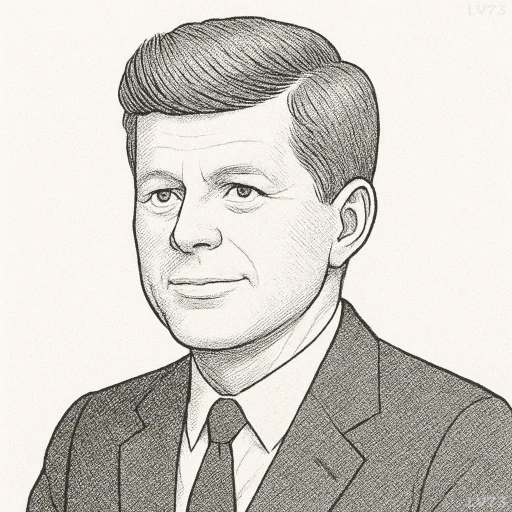“We prefer world law in the age of self-determination to world war in the age of mass extermination.”

- May 29, 1917 – November 22, 1963
- American
- Politician
table of contents
Quote
“We prefer world law in the age of self-determination to world war in the age of mass extermination.”
Explanation
In this powerful statement, John F. Kennedy contrasts two very different visions for the future of the world: one where international law and self-determination guide relations between nations, and another where global conflict leads to the potential annihilation of humanity. The first part of the quote reflects Kennedy’s hope for a world order based on cooperation, justice, and the respect for sovereignty, where countries resolve disputes peacefully and allow their peoples to determine their own futures without external intervention. The second part of the quote is a stark reminder of the consequences of global war—particularly the potential for nuclear weapons and the reality of mass extermination. Kennedy is emphasizing that the choice between these two paths is clear: the future must be one of law, diplomacy, and mutual respect, not one of violence and destruction.
Kennedy’s words were spoken during the height of the Cold War, when the threat of nuclear conflict between the United States and the Soviet Union loomed large. The concept of self-determination was also gaining prominence, especially as former colonies around the world were achieving independence and asserting their right to govern themselves. Kennedy’s call for world law reflects his belief that the future of global relations should be based on diplomacy and legal frameworks that respect the rights of nations, rather than the brute force of war.
Today, Kennedy’s message resonates in the context of international diplomacy, nuclear non-proliferation, and the ongoing efforts to create a rules-based international order. In a world still haunted by the potential for nuclear conflict and regional wars, his call for peaceful resolution and international cooperation is more relevant than ever. As global challenges like climate change, pandemics, and international conflicts continue to unfold, the choice remains: should we pursue paths of cooperation and law, or risk the catastrophic consequences of unchecked violence and war? Kennedy’s vision is a reminder of the importance of building a global community based on mutual respect, dialogue, and a shared commitment to human survival.
Would you like to share your impressions or related stories about this quote in the comments section?

